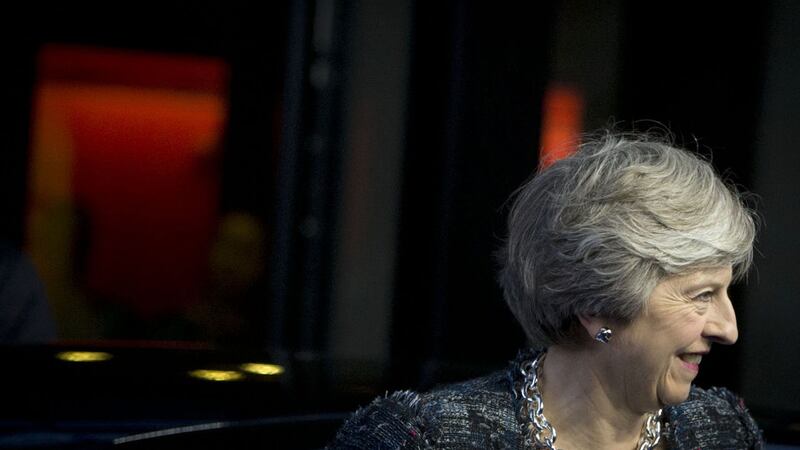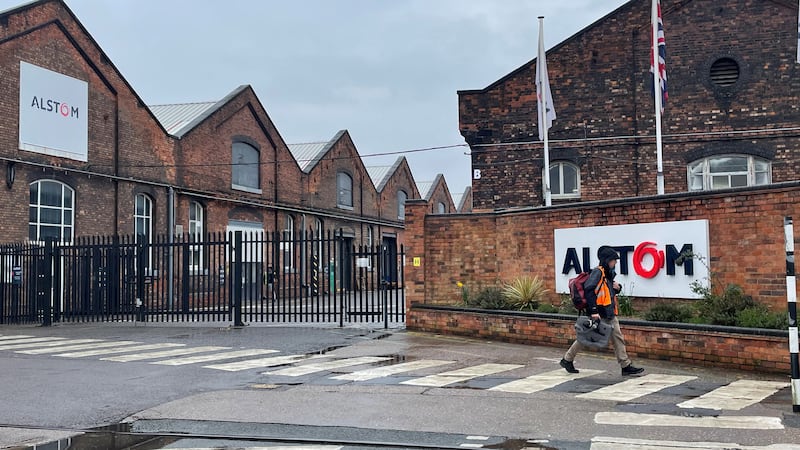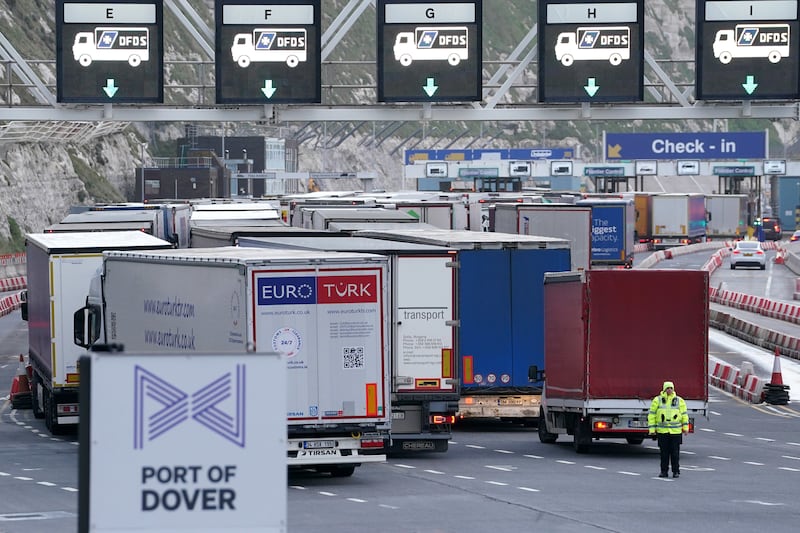Downing Street has insisted that European Court of Justice jurisdiction over EU nationals in the UK will end after a two-year transition period following Brexit.
Reports suggested that a meeting of senior ministers chaired by Theresa May on Monday evening had left the door open for some continuing involvement of the Luxembourg court after Brexit.
Immigration minister Brandon Lewis fuelled speculation the prime minister was preparing to make concessions to the EU's demand for ECJ oversight of citizens' rights, when he told MPs that the matter was "part of the negotiations".
But Mrs May's official spokesman told a regular Westminster media briefing that the Government expected the ECJ's role to be unchanged during an "implementation period" of around two years following the official Brexit date in March 2019, but that "post that period, the jurisdiction of the ECJ will come to an end".
The spokesman declined to confirm reports that Monday's meeting had given Mrs May the green light to make a higher offer to Brussels on the "divorce bill" the UK will pay to settle its liabilities on quitting the EU.
Mrs May is expected to signal to European Council president Donald Tusk at a meeting in the Belgian capital on Friday that she is ready to consider a settlement in the region of £38 billion, well short of the £53 billion being sought by Brussels.
But she is not thought likely to name a precise figure which Britain is prepared to pay until she has a clear idea of what kind of trade deal is available with the remaining EU, with Downing Street insisting that "nothing's agreed until everything's agreed".
Mrs May's spokesman would say only that "specific figures or scenarios are all subject to negotiation".
The agreement to increase the UK's offer beyond the £18 billion which Mrs May had previously indicated she was prepared to sanction was being seen as a major concession by arch-Brexiteers Boris Johnson, who once said the EU could "go whistle" if it wanted to extract large sums, and Michael Gove.
But some Leave-backing Tories were urging the PM to hold back on improving her offer during the current uncertainty over Germany's government, following the collapse of Angela Merkel's coalition negotiations.
Jacob Rees-Mogg said it would be "foolish" to make further concessions at this point, while former Tory leader Iain Duncan Smith urged the PM to "sit tight" in light of Mrs Merkel's political weakness.
German agriculture minister Christian Schmidt warned Tory Brexiteers not to try to take advantage of the political turmoil in his country at the risk of missing out on a deal, telling the BBC Radio 4 Today programme: "My suggestion is just to think which kind of disaster this would be for the United Kingdom's economy.
"This is not a game, winner and loser. This is a responsibility.
"We see it in the 27 European member states.
"I think we see that there is a lot of responsibility also to the UK."
Mrs May faces a potentially awkward vote over the Charter of Fundamental Rights, as her flagship EU (Withdrawal) Bill returns to the House of Commons for the third day of line-by-line scrutiny in the committee stage.
Tory former attorney general Dominic Grieve is leading the fight to allow the EU Charter to continue to apply to the UK once it quits the bloc.
Mr Grieve said he wanted ministers to show flexibility on the issue as his amendment was set to be debated and put to another showdown vote.
He told the Press Association: "I am hoping that the government will make concessions on this and respond positively."
The Bill, which brings much of EU law into British law, has proved problematic for the Government as Tory rebels have threatened to join forces with the opposition and reject parts of the legislation they oppose.
Liberal Democrat home affairs spokesman Sir Edward Davey said that Mr Lewis's suggestion that the future role of the ECJ remained up for negotiation showed that the government was "watering down" one of its red lines.
"The government should not be ashamed in rowing back on what was a ridiculous assertion from the prime minister in the first place," said Sir Edward.
Mrs May said that the EU and UK should "step forward together" to move Brexit negotiations on from the first phase, dealing with divorce arrangements, to the second, dealing with the future trade relationship.
Speaking in 10 Downing Street, the prime minister said: "We are ready to move on to phase two, to see those talks about a deep and special partnership with the EU for the future.
"I think that is in the interests of the UK and in the interests of the remaining EU27.
"I think it is also important that the EU and the UK step forward together."
Meanwhile, Brexit secretary David Davis said the UK was prepared for the possibility of not securing a deal with the EU.
He said: "While I have said I'm confident that we can get a deal with the European Union, of course, the alternative is possible, not probable, but it's possible, that we don't get a deal.
"The department I run, Dexeu for short, isn't called the department for getting a deal come what may, it is the Department for Exiting the European Union.
"And, whatever happens, we are leaving the European Union and delivering on the instructions of the British people.
"I don't think it would be in the interests of either side for there to be no deal.
"As a responsible government it is right that we make every plan for every eventuality."
Mr Davis was speaking at a Brexit conference entitled Deal Or No Deal in London, and stumbled as he left the stage.
The Republic's foreign minister Simon Coveney warned that an enhanced financial offer would not secure the UK the trade talks it is seeking, unless concerns over the border with Northern Ireland were also resolved.
Mr Coveney said there was "a lot of solidarity" among the 27 remaining EU members for Dublin's position that Northern Ireland must retain the regulatory framework of the single market and customs union in order to avoid creating a hard border with the Republic.
He told the Evening Standard: "Anybody who thinks that just because the financial settlement issue gets resolved ... that somehow Ireland will have a hand put on the shoulder and be told, 'Look, it's time to move on.' Well, we're not going to move on.
"This is a much bigger issue than trade. This is about division on the island of Ireland.
"I will not be an Irish foreign minister that presides over a negotiation which is not prioritising peace on the island of Ireland... We're not willing to move on without more assurance on the border."







